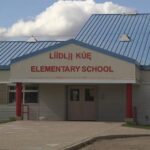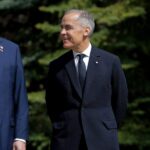As I drive through Innisfail-Sylvan Lake, lawn signs for the Alberta Independence Party punctuate the rural landscape with increasing frequency. What might have seemed fringe just five years ago has become impossible to ignore—separatist sentiment is no longer whispered in coffee shops but boldly displayed on campaign materials across this central Alberta riding.
Monday’s provincial byelection has transformed into something more significant than simply filling a vacant seat. For many voters here, it represents a temperature check on Alberta’s relationship with Ottawa, one that’s grown increasingly strained under years of federal Liberal governance.
“I’ve voted Conservative my whole life, but what has it gotten us?” asks Mike Thornton, a third-generation farmer I meet at a local diner. “Every time we send MPs to Ottawa, they either get ignored or go native. Maybe it’s time to try something different.”
The Alberta Independence Party’s candidate Danielle Klooster has tapped into this frustration, drawing surprising crowds to campaign events where she argues Alberta would be better off as a sovereign nation. Her campaign literature highlights familiar grievances—equalization payments, pipeline obstructions, and what many here perceive as eastern Canadian indifference to western economic concerns.
Recent polling from Abacus Data suggests separatist sentiment has climbed to nearly 28 percent across Alberta—the highest recorded level since the introduction of the federal carbon tax. In rural areas like this riding, that number likely runs higher.
Premier Danielle Smith, herself once associated with more moderate forms of autonomy advocacy, has attempted to straddle both worlds. “We understand the frustration many Albertans feel,” she said at a recent press conference. “But we believe in a strong Alberta within Canada, one that demands respect for our constitutional jurisdiction.”
The United Conservative Party candidate Don Hoover has the difficult task of convincing voters that the provincial government is already fighting effectively for Alberta’s interests through initiatives like the Alberta Sovereignty Act, while simultaneously pledging loyalty to Canada.
“There’s a difference between standing up for Alberta and tearing apart the country,” Hoover told me at a campaign stop last week. “We can be patriotic Albertans and Canadians at the same time.”
At the Innisfail Legion Hall, I watched voters pepper candidates with questions that rarely touched on local issues like healthcare waiting times or classroom sizes. Instead, the conversation repeatedly returned to federal-provincial tensions, equalization formulas, and constitutional autonomy.
The real significance of Monday’s vote extends far beyond this single riding. Political scientist Duane Bratt from Mount Royal University explains, “This byelection is functioning as a proxy referendum on separatism. The percentage of support the Independence Party receives will be closely analyzed by all political parties as they prepare for the next general election.”
What makes this moment particularly noteworthy is how the rhetoric has evolved. Unlike previous waves of western alienation that focused primarily on policy reform, today’s separatist movement speaks increasingly in the definitive language of divorce.
“Reform isn’t enough anymore,” says Eleanor Wadsworth, a retired teacher attending a campaign event. “We’ve tried that route for decades. The system is designed to benefit central Canada at our expense, and that isn’t going to change.”
Census data reveals this riding has been hit particularly hard by economic transitions. Unemployment in the energy sector remains stubbornly high at 8.3 percent compared to the provincial average of 6.2 percent, according to Statistics Canada‘s latest labour force survey.
For NDP candidate Robyn O’Brien, this byelection presents a delicate balancing act. “I understand the frustration,” she told a small gathering at a local community center. “But separating from Canada would create enormous economic uncertainty at a time when we need stability. Let’s focus on solutions that don’t require breaking up the country.”
The arguments against separation remain compelling—complex questions about currency, trade relationships, pension plans, and border security have no simple answers. Yet for a growing number of voters, these practical concerns pale compared to their emotional sense of disconnection from the federation.
This byelection carries echoes of similar movements worldwide, where regional identities clash with national governance structures. The comparison to Quebec’s sovereignty movement is inevitable, though the contexts differ substantially.
Former premier Ralph Klein once famously described Alberta’s relationship with Ottawa as “the perpetual adolescent, chafing against parental control.” Two decades later, that adolescent appears increasingly determined to leave home entirely.
As polls open Monday, the results will offer a crucial data point in understanding just how far separatist sentiment has moved from political fringe to potential mainstream reality. While few expect an outright Alberta Independence Party victory, even a strong second-place showing would send shockwaves through provincial and federal political establishments.
Whatever Monday’s outcome, one thing seems increasingly clear as I conclude my tour through this central Alberta riding—the conversation about Alberta’s place in confederation has fundamentally shifted. The question is no longer whether separatist sentiment exists, but how deep it runs and whether it can be effectively channeled into political action.
In the words of one voter I met outside an early polling station: “This vote isn’t just about choosing a representative. It’s about sending a message.”
That message, whatever its volume on Monday, will certainly be heard far beyond Alberta’s borders.






